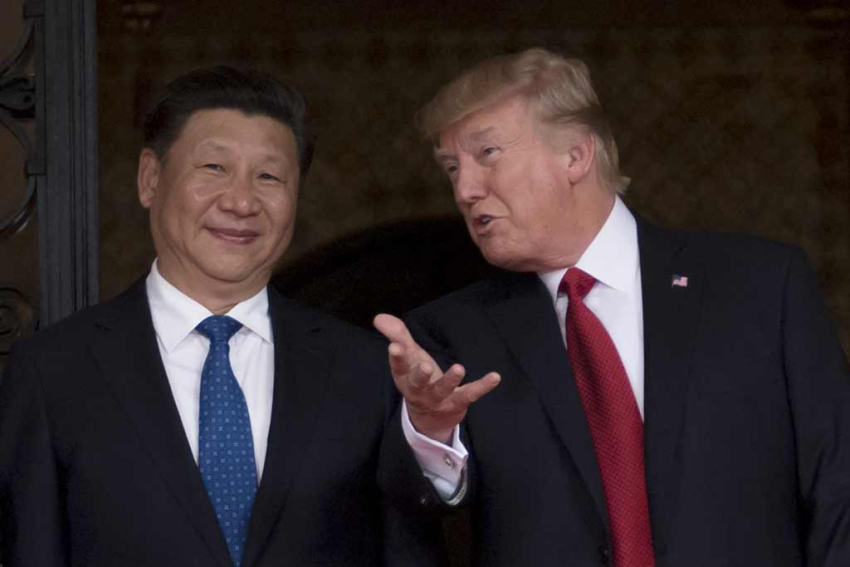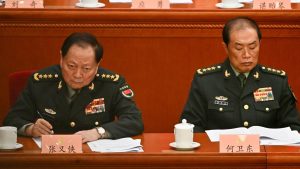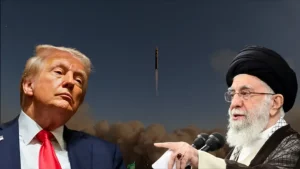BEIJING – China will open its market to US credit rating agencies and credit card companies and will resume imports of US beef, part of a package hailed by the Trump administration as the first step in redefining the trade relationship between the world’s two largest economies.
The 10-point package revealed on Friday was billed as an “early harvest” from the 100-day plan to reset the trade relationship that Chinese leader Xi Jinping and Donald Trump agreed to pursue when they met in April. It also saw the Trump administration offer its tacit endorsement of one of Mr Xi’s pet projects – Beijing’s vast plan to revive the ancient “Silk Road” to Europe, which many in Washington have in recent years viewed as a Chinese effort to counter US strategic influence in Asia.
Close observers of the US-China relationship quickly raised questions about the deal, pointing out that most of Beijing’s key promises had been made before or were in line with China’s existing international commitments. The deal was akin to “tea so weak it’s almost water,” said one senior US business executive.
But it is the latest sign that the US president is adopting a less confrontational approach with Beijing. During last year’s election campaign, he threatened to impose punitive tariffs on Chinese goods and label China a currency manipulator.
Although Mr Trump and his aides still complain regularly about the more than $300bn US trade deficit with China the new US president has begun to express a greater appreciation for the complexities of geopolitics. Much of the change in tone has come about as Mr Trump has sought China’s help in trying to rein in its ally in North Korea as the regime in Pyongyang continues to develop long-range missiles and threaten new nuclear tests.
“China just agreed that the U.S. will be allowed to sell beef, and other major products, into China once again. This is REAL news!” Mr Trump tweeted on Friday.

In an interview with The Economist published on Thursday, he also praised Mr Xi and his relationship with the Chinese leader. “I’m dealing with a man, I think I like him a lot. I think he likes me a lot,” he said. “I mean, he’s a great guy.”
Under the agreement rolled out on Friday, the US said it would send a delegation to this weekend’s “One Belt, One Road” summit in Beijing in what amounts to a diplomatic embrace of the project.
In return, China would send a delegation to a US meeting for foreign investors in July, with the Trump administration promising equal treatment for China despite a push in some circles in Washington for it to take a tougher line on Chinese investment, particularly in strategic sectors.
“The US welcomes direct investment by Chinese entrepreneurs as it does by entrepreneurs from other countries,” a joint statement read.
Speaking in Beijing on Friday, Zhu Guangyao, Chinese vice-finance minister, said Sino-US negotiators were in contact “24 hours a day” because of the complexity of the negotiations. “We cannot politicise economic issues,” Mr Zhu said.
The agreement contains tangible gains that Mr Trump will be able to claim as wins. “This will help us to bring down the deficit for sure,” said Wilbur Ross, the US commerce secretary. “You watch and you’ll see.”
In financial services, China said it would begin allowing wholly foreign-owned financial groups to offer credit rating services in China by July 16. It will also allow US-owned payment processors such as MasterCard and Visa to apply for licences to settle renminbi payments in China, in a move that “should lead to full and prompt market access”, the joint statement said.
Beijing will issue bond underwriting and settlement licences to two US financial institutions.
Some of those Chinese pledges echo ones made in the past. Beijing promised to open up the renminbi clearing industry when it joined the World Trade Organisation in 2001 and lost a related 2012 case about its failure to do so. More importantly, over the 16 years since it joined the WTO it has established a de facto state-controlled monopoly over the renminbi clearing market.
“Opening the market for electronic payments is mainly symbolic,” said Ker Gibbs, chairman of the American Chamber of Commerce in Shanghai. “This should have been done years ago when it would have made a difference. At this point the domestic players are well entrenched so foreign companies will have a hard time entering.”
But those commitments came alongside an agreement for China to resume imports of US beef and to speed up its approvals of genetically modified crops and other biotech products now awaiting Chinese licences.
In return, Washington said it would encourage exports of liquid natural gas to China and allow imports of cooked poultry meat from China. The US Commodity Futures Trading Commission would also extend by six months a “no-action letter” negotiated last year to the Shanghai Clearing House for failing to register its operations related to derivatives trading with US authorities. The letter was due to expire at the end of this month.














